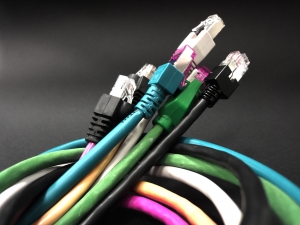 t various stages throughout my career (I am 29 now), myself and others pondered starting a blog about Open Access, Open Data or open research (opening one’s lab, including data, methods, etc.), but since I already spend more time than I can afford advocating GNU/Linux, I ended up spending a lot of my energy fighting against software patents. This is one aspect among several involving the sharing and transparency of the sciences. There is of course also a dimension associated with copyrights and despite its importance I no longer have time to pursue the issue; many people already do so anyway. To put the core argument succinctly, nowadays when we have the Internet and we have a presentation layer such as the World Wide Web (for exchange of inter-connected rich media), we no longer depend on many analogue technologies and the notion of scarcity must cope and catch up with what’s available. To expect people to publish their findings only in paper form with pagination is to pretend that we are locked into legacy, which we should not. Computer Vision is considerably limited by paper. There are much better and faster ways of getting messages across, especially in this age of information overload. Moreover, travelling for presentation to a crowd (conference) is less necessary now that many people’s Internet connections permit video streaming at a good resolution. Romanticising over the nostalgia which is 20th century-esque research is no longer beneficial as it leads to inheriting inherent limitations. I was reminded of this in an IRC conversation last night. It was agreed upon that the theory about publishers exploiting academics to write, review and even edit entire publications for the publishers to profit from at the expense of those academics is something that needs to be stopped. Many academics these days have their own homepages and sometimes their blogs too. They can publish a lot of material there and let the quality/accuracy be determined by citation, e.g. something like the PageRank system which merely inherits the ideas of algorithms before its time (take away Google’s/Stanford’s patent while at it). The issue of course is that people cannot reference papers by Internet addresses, at least not by conventional means. The idea that papers should be accessible through libraries though is outdated as libraries too are going somewhat extinct and the speed of working there is inferior. Other than self pride and honour from peers, what incentive is there really to being heavily involved in the publication industry which benefits publishers and offers writers not so much exposure anymore? Fewer people seem to be searching journals; they use external search engines or Wikipedia instead (it’s multi-lingual). The debate becomes ever more relevant now that Aaron Schwartz is being hounded for just doing his job.
t various stages throughout my career (I am 29 now), myself and others pondered starting a blog about Open Access, Open Data or open research (opening one’s lab, including data, methods, etc.), but since I already spend more time than I can afford advocating GNU/Linux, I ended up spending a lot of my energy fighting against software patents. This is one aspect among several involving the sharing and transparency of the sciences. There is of course also a dimension associated with copyrights and despite its importance I no longer have time to pursue the issue; many people already do so anyway. To put the core argument succinctly, nowadays when we have the Internet and we have a presentation layer such as the World Wide Web (for exchange of inter-connected rich media), we no longer depend on many analogue technologies and the notion of scarcity must cope and catch up with what’s available. To expect people to publish their findings only in paper form with pagination is to pretend that we are locked into legacy, which we should not. Computer Vision is considerably limited by paper. There are much better and faster ways of getting messages across, especially in this age of information overload. Moreover, travelling for presentation to a crowd (conference) is less necessary now that many people’s Internet connections permit video streaming at a good resolution. Romanticising over the nostalgia which is 20th century-esque research is no longer beneficial as it leads to inheriting inherent limitations. I was reminded of this in an IRC conversation last night. It was agreed upon that the theory about publishers exploiting academics to write, review and even edit entire publications for the publishers to profit from at the expense of those academics is something that needs to be stopped. Many academics these days have their own homepages and sometimes their blogs too. They can publish a lot of material there and let the quality/accuracy be determined by citation, e.g. something like the PageRank system which merely inherits the ideas of algorithms before its time (take away Google’s/Stanford’s patent while at it). The issue of course is that people cannot reference papers by Internet addresses, at least not by conventional means. The idea that papers should be accessible through libraries though is outdated as libraries too are going somewhat extinct and the speed of working there is inferior. Other than self pride and honour from peers, what incentive is there really to being heavily involved in the publication industry which benefits publishers and offers writers not so much exposure anymore? Fewer people seem to be searching journals; they use external search engines or Wikipedia instead (it’s multi-lingual). The debate becomes ever more relevant now that Aaron Schwartz is being hounded for just doing his job.
Eventually, prices will converge somewhere around zero not because academic work is worthless but because people’s goal is to share and disseminate their ideas, not to serve someone else’s paywall. The real worth of research is derived from its reach, not its scarcity.
 T SOME point once a year, usually in July, I take a long break from the computer and the Internet (that’s my main machine at the top). In the coming week and a half I will be travelling outdoors, meeting friends, and working inside the lab where the Internet connection is not crucial (in fact, it is providing distractions in many ways).
T SOME point once a year, usually in July, I take a long break from the computer and the Internet (that’s my main machine at the top). In the coming week and a half I will be travelling outdoors, meeting friends, and working inside the lab where the Internet connection is not crucial (in fact, it is providing distractions in many ways).





 Filed under:
Filed under: 



 hat happens when the network does not function or functions very poorly? What happens when the Internet is altogether down or goes on and off almost indefinitely/infinitely? The problem need not apply to the Internet connection as a whole; it might for example be a DNS server, a particular Web site which is necessary to access, a server at work, or even a message/call which is anticipated. When there is no estimated time for service restoration one can just assume that normality will resume shortly. Only in retrospect can one decide that it would have been better to just walk away and do something else (even offline) until the problems are resolved for good.
hat happens when the network does not function or functions very poorly? What happens when the Internet is altogether down or goes on and off almost indefinitely/infinitely? The problem need not apply to the Internet connection as a whole; it might for example be a DNS server, a particular Web site which is necessary to access, a server at work, or even a message/call which is anticipated. When there is no estimated time for service restoration one can just assume that normality will resume shortly. Only in retrospect can one decide that it would have been better to just walk away and do something else (even offline) until the problems are resolved for good.
 oogle Plus (G+) and Google Profiles look very similar and almost identical. Is Google merging them? It seems possible. It actually goes deeper than this. Google has become a major content network and not just a gateway to information. Not anymore anyway. Will Google use people’s personal data to push ads? Well, it’s already doing this. The transaction is hosting in exchange for changing one’s perception on behalf of advertisers, but the real problem is the
oogle Plus (G+) and Google Profiles look very similar and almost identical. Is Google merging them? It seems possible. It actually goes deeper than this. Google has become a major content network and not just a gateway to information. Not anymore anyway. Will Google use people’s personal data to push ads? Well, it’s already doing this. The transaction is hosting in exchange for changing one’s perception on behalf of advertisers, but the real problem is the